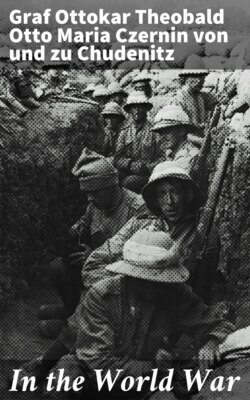Читать книгу In the World War - Graf Ottokar Theobald Otto Maria Czernin von Chudenitz - Страница 17
На сайте Литреса книга снята с продажи.
2
ОглавлениеTable of Contents
There was a widely-spread but entirely wrongful idea in the Monarchy that the Archduke had drawn up a programme of his future activities. This was not the case. He had very definite and pronounced ideas for the reorganisation of the Monarchy, but the ideas never developed into a concrete plan—they were more like the outline of a programme that never was completed in detail. The Archduke was in touch with experts from the different departments; he expounded the fundamental views of his future programme to prominent military and political officials, receiving from them hints on how to materialise these views; but a really finished and thought-out programme was never actually produced. The ground lines of his programme were, as already mentioned, the abolition of the dualism and the reorganisation of the Monarchy to form a federative state. He was not clear himself into how many states the Habsburg Monarchy should be converted, but the principle was the rebuilding of the Monarchy on a national basis. Having always in view that prosperity depended on the weakening of the Magyar influence, the Archduke was in favour of a strong preference for the different nationalities living in Hungary, the Roumanians in particular. Not until my return to Bucharest and following on my reports did the Archduke conceive the plan of ceding Transylvania to Roumania and thus adding Greater Roumania to the Habsburg Empire.
His idea was to make of Austria separate German, Czech, Southern Slav and Polish states, which in some respects would be autonomous; in others, would be dependent on Vienna as the centre. But, so far as I know, his programme was never quite clearly defined, and was subject to various modifications.
The Archduke had a great dislike for the Germans, especially the northern Bohemians, who were partisans of the Pan-Germanic tendencies, and he never forgave the attitude of the Deputy Schönerer. He had a decided preference for all Germans in the Alpine countries, and generally his views were very similar to those of the Christian Socialists. His political ideal was Lueger. When Lueger was lying ill the Archduke said to me: "If God will only spare this man, no better Prime Minister could be found." Franz Ferdinand had a keen desire for a more centralised army. He was a violent opponent of the endeavours of the Magyars whose aim was an independent Hungarian army, and the question of rank, word of command, and other incidental matters could never be settled as long as he lived, because he violently resisted all Hungarian advances.
The Archduke had a special fondness for the navy. His frequent visits to Brioni brought him into close touch with our navy. He was always anxious to transform the Austrian Navy into one worthy of a Great Power. In regard to foreign policy, the Archduke was always in favour of a Triple Alliance of the three Emperors. The chief motive of this idea must have been that, in the three then apparently so powerful monarchs at Petersburg, Berlin and Vienna, he saw the strongest support against revolution, and wished thereby to build up a strong barrier against disorganisation. He saw great danger to the friendly relations between Russia and ourselves in the rivalry between Vienna and Petersburg in the Balkans, and contrary to the reports that have been spread about him, he was rather a partisan than an opposer of Serbia. He was in favour of the Serbians because he felt assured that the petty agrarian policy of the Magyars was responsible for the constant annoyance of the Serbians. He favoured meeting Serbia half-way, because he considered that the Serbian question was a source of discord between Vienna and Petersburg. Another reason was that he was no friend of King Ferdinand of Bulgaria, who constantly pursued an anti-Serbian policy. I believe that if those who were responsible for the organisation of the assassination of the Archduke had known what little justification there was for supposing him to be the man they thought him, they would have desisted.
Franz Ferdinand had a very pronounced feeling that in spite of all alliances the Monarchy must remain independent. He was opposed to any closer combine with Germany, not wishing to be bound to Germany more than to Russia, and the plan that was formulated later as "Central Europe" was always far removed from his wishes and endeavours.
His plans for the future were not worked out, not complete, but they were sound. This, however, is not sufficient to enable one to say that they could have been successfully carried out. In certain circumstances more harm than good will result from energy devoid of the necessary calm prudence, wisdom and, above all, patience.
